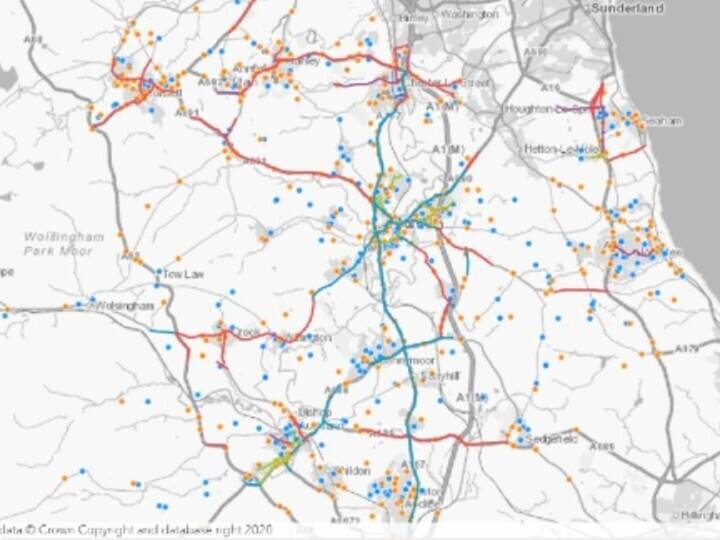Delivering service improvement through addressing: South Gloucestershire Council.
An NLPG pilot authority, South Gloucestershire Council’s local gazetteer was incorporated into the initial NLPG build. Since then, the council’s emphasis on customer service delivery has ensured that its LLPG has permeated most of its services. In particular, the gazetteer underpins the CRM application used throughout the council’s one-stop shops and customer contact centres.
Consistent addressing with customers
Councillor Mike Armstrong, Executive Member for Corporate and External Affairs, has no doubt about the central role that the LLPG is playing in the council’s contact with local residents: ‘
"We need to ensure that we use consistent property addresses in all our dealings with residents, and the gazetteer is crucial to achieving this aim. The LLPG is already playing an important part in enabling South Gloucestershire Council to provide better joined-up services to the public."
One of these applications is the council’s customer tracking system, which uses the gazetteer as its addressing layer. Essentially a customer relationship management (CRM) tool, it is used throughout the authority’s customer contact centres and one-stop shops. ‘Centralised addressing to a national standard employed within these services means a consistency of service performance’, Cllr Armstrong acknowledges, ‘whilst the cross-referencing of addresses enables effective continuity and tracking of vital information essential to service evaluation. Crucial to us is the fact that the LLPG is also available on the staff intranet, ensuring that all staff benefit from it as the authoritative source of addressing.’
The NLPG has also contributed to the development of new services such as an online change-ofaddress facility. Residents visit the council’s website and have to register only once. Immediately, all departments in the council are informed of their new address. ‘This simple service enhances social inclusion by ensuring that residents new to South Gloucestershire or those simply moving within it always receive council services as soon as possible.’
Improving data quality and analysis
Caron Bentley, Contact Centre Training Manager, appreciates the significant benefits gained by using the NLPG for data management and quality- control:
"Using the LLPG as the key address layer within our customer tracking system (CTS) ensures that we capture the right address in our contact details. When a staff member runs an address search, the CTS automatically checks the LLPG for the address. Once it locates the correct address, it is then flagged as bona fide and the nature of the client query is recorded against it. Across the council’s one-stop shops and contact centres, the data collected and attached to individual addresses makes the NLPG framework invaluable for data analysis and ‘quality-control monitoring’. Teams can analyse any contact based on the nature of the query and location, and can use this to highlight incident hotspots and frequency. All this data then feeds into the council’s customer service strategy and helps us to target our services better."
On the corporate intranet used by staff, new and changed addresses can be exchanged from the LLPG between any two dates. Most addresses in the LLPG have a polygon (a closed spatial boundary) aligned to them so that staff with access to GIS can look at spatial information such as mapping and imagery linked to LLPG addressing.
Roger Ford, the council’s e-Government Manager, maintains that the LLPG is central to South Gloucestershire’s modernisation programme:
"Our ICT strategy guidelines direct that all new systems and facilities must now use the NLPG address facility or linking mechanism. This is a crucial part of providing more joined-up services to the public."
Caron Bentley, Contact Centre Training Manager.:
"Across the council’s one-stop shops and contact centres, the data collected and attached to individual addresses makes the NLPG framework invaluable for data analysis and ‘quality-control monitoring".



